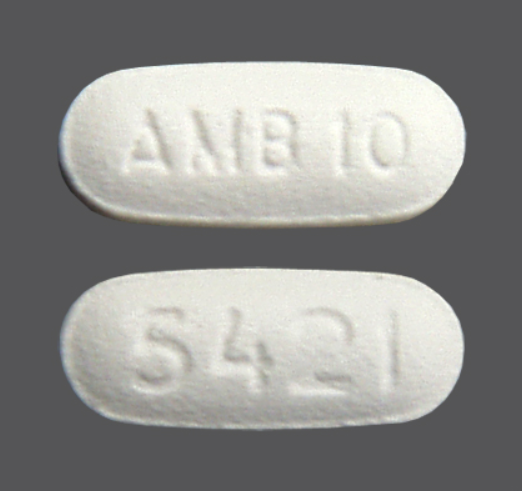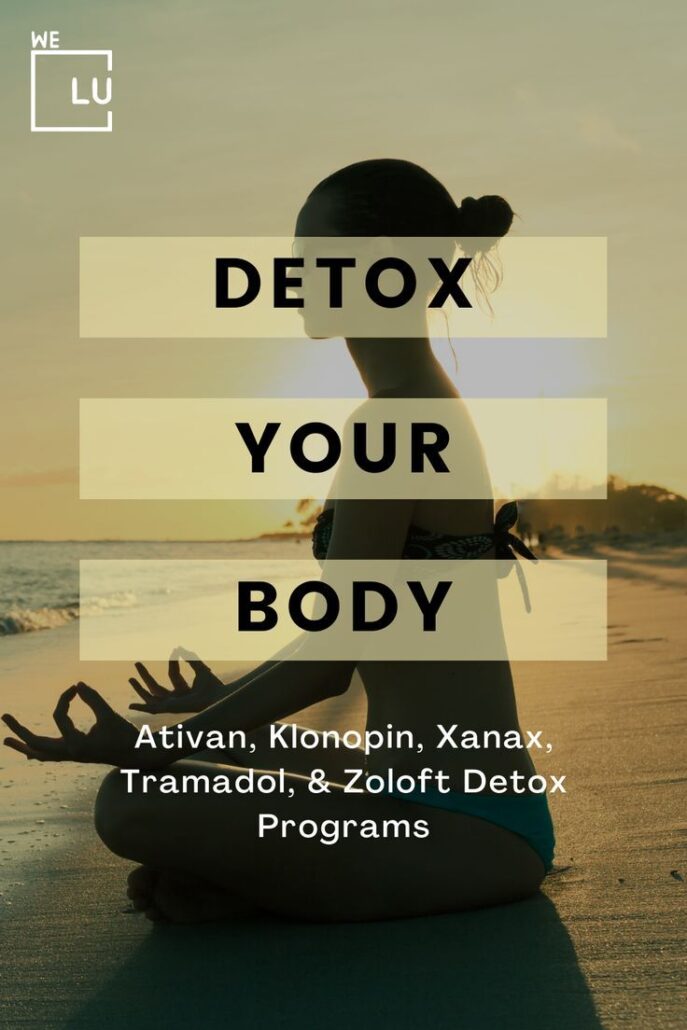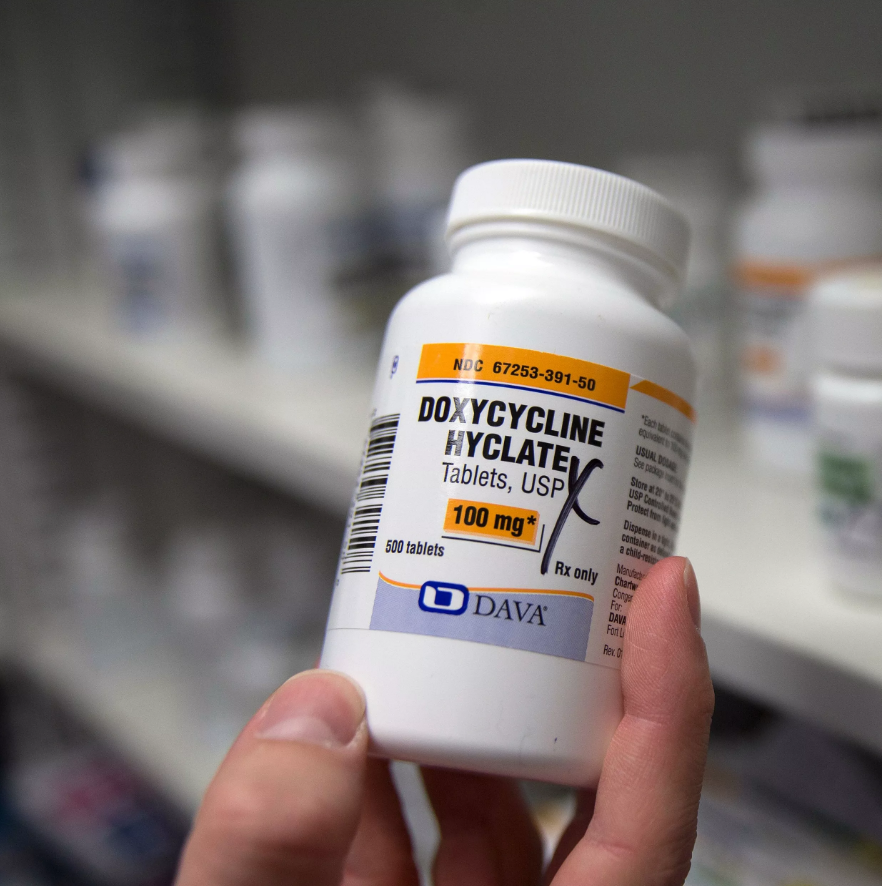Ambien Abuse and Addiction
Ambien is a quick-acting sleep aid for insomnia, but be cautious. It can cause risky behavior while half asleep and may lead to dependence if not used as prescribed.
Initially thought to be a safer option than benzodiazepines for avoiding addiction or tolerance, Ambien’s risks were underestimated. Studies indicate potential health issues with prolonged use, such as respiratory problems, reflux, and infections. Although similar to benzodiazepines, Ambien is somewhat less likely to cause grogginess or dependence.
At We Level Up New Jersey, we know the struggles of substance use disorder. We provide tailored detox programs to help you overcome Ambien addiction. Our center has skilled professionals in drug addiction and mental health, offering thorough treatment in a secure and supportive setting. Call today for a free and easy evaluation.
What is Ambien (Zolpidem)?
Ambien is a sedative-hypnotic drug, working by calming anxiety (sedative) and inducing sleep (hypnotic) in the brain.
Ambien (also known by its generic name, zolpidem) is a commonly prescribed sleep aid in the United States. As a Schedule IV controlled substance, it is thought to have a low potential for abuse. However, many people misuse Ambien by taking more than prescribed to help them sleep when they are tolerant of it. Others abuse it by taking it and purposefully staying awake. This produces a euphoric, out-of-body effect, accompanied by strange behavior and short-term memory loss. Ambien addiction can lead to physical dependence and increase a person’s risk of overdose.
Besides being a sedative-hypnotic, Ambien is also a central nervous system (CNS) depressant. CNS depressants, like Ambien, attach to GABA receptors in the brain, leading to sedation. Other examples of CNS depressants include benzodiazepines (like Xanax or Valium) and opioids.
What are the Side Effects of Ambien?
Short-term effects of Ambien may include headache, drowsiness, and dizziness. If you wake up groggy, the FDA warns against driving or risky activities until you are fully awake.
Prescription Ambien, per the FDA, is fast-acting and for bedtime use. Severe side effects can occur, such as strange behavior or thinking, with users sometimes doing activities like driving or eating without memory the next day. Commonly reported activities after Ambien include driving, eating, sleepwalking, talking on the phone, and engaging in sexual activity.
Severe and less common Ambien side effects may include the following:
- Memory loss.
- Anxiety.
- Allergic reactions.
- Confusion.
- Agitation.
- Hallucinations.
- Worsening depression.
- Suicidal thoughts.
The risk of these increases with higher Ambien doses. Only take Ambien as prescribed by your doctor, and avoid it without a prescription.
Ambien Effects and Causes of Misuse
Ambien is meant to be taken immediately before bed, but some people have been known to take the drug hours before sleeping. This leads to a euphoria. Some people increase their dosage or take it longer than recommended and become mentally, physically, or both dependent on the drug. Some obtain it illegally, even if they’ve never had a prescription. The FDA also advises against prescribing Ambien to those with a substance abuse history.
Drug abuse is defined as the ongoing or sporadically excessive use of a drug in a way that does not conform or correspond to acceptable medical practice, leading to clinically significant impairment or distress.
How to Know If Someone is Developing Ambien Addiction?
Physical dependence on Ambien can develop in just two weeks, whether someone is using it as prescribed or abusing it. Dependence means needing more for the same effect and experiencing withdrawal symptoms if usage is reduced.
Over time, dependence can turn into addiction, marked by the following:
- Tolerance.
- Withdrawal symptoms.
- Lack of control over use.
- Compulsive use.
- Cravings.
Some only realize they have an issue when they try to stop and find they can’t sleep without it.
Ambien Addiction Signs
Other signs of Ambien addiction and abuse include the following:
- Obtaining prescriptions from multiple doctors.
- Continually increasing dosage.
- Inability to control use, even with negative consequences.
- Financial strain from buying Ambien.
- Secretive behavior.
- Loss of interest in hobbies.
- A constant state of sedation.

Skip To:
Learn More:
- Is Ambien Addictive? Ambien Addiction and Abuse
- Is Ambien a Narcotic? Ambien Risks and Addiction Potential. Ambien Narcotics. Why is Ambien a Narcotic?
- Mixing Ambien and Alcohol, Side Effects, Uses, and Treatment
- Can You Overdose on Sleeping Pills? Risks, Symptoms, and Treatment
- Prescription Pill Detox and Medications
- Benzodiazepine Detox, Withdrawal, Symptoms, Timeline, and Treatment
- Benzo Addiction Treatment
Ambien Withdrawal Symptoms
Ambien (zolpidem) is relatively safe when taken as prescribed. However, it is generally not prescribed for longer than two weeks because the body can quickly tolerate its effects. Instead, it is intended as a temporary sleep aid. If you keep using Ambien even after your doctor says to quit, your body might get used to it and show withdrawal symptoms like rebound insomnia once you stop.
Because of how Ambien affects the brain, taking it in excess can cause changes in brain structure that make the brain less efficient at operating without the drug. When someone is not taking Ambien, the brain may be unable to properly regulate GABA, causing too much brain activity and cravings for the drug.
If you have been using Ambien in large doses or for a long time, you may encounter more severe withdrawal symptoms. Withdrawal may start within 48 hours of quitting or cutting back on Ambien’s use.
Symptoms of withdrawal can include the following:
- Agitation.
- Anxiety or panic attacks.
- Delirium.
- Disorientation.
- Hallucinations.
- Increased blood pressure, pulse, breathing rate, or body temperature.
- Sweating.
- Fatigue.
- Insomnia.
- Irritability.
- Nausea or vomiting.
- Restlessness.
- Seizures.
- Stomach cramps and abdominal discomfort.
- Tremors.
Ambien Withdrawal Timeline Chart
This table provides a general overview of the potential withdrawal symptoms, physical effects, and coping strategies at different stages of Ambien withdrawal.
| Time Period | Ambien Withdrawal Symptoms | Physical Effects | Coping Strategies |
|---|---|---|---|
| 1-3 Days | Insomnia, anxiety | Fatigue, headaches | Establish a bedtime routine, relaxation techniques |
| 4-7 Days | Increased anxiety, irritability | Nausea, dizziness | Regular exercise and a healthy diet |
| 1-2 Weeks | Persistent insomnia, mood swings | Digestive issues | Professional support, therapy |
| Beyond 2 Weeks | Lingering insomnia, psychological symptoms | Gradual improvement in physical symptoms | Continued therapy, ongoing support |
Medically managed withdrawal, also known as medical detox, is when you lower the use of a substance in a facility while under the care of trained medical staff. Case report evidence confirms there is a potential risk of withdrawal seizures. For this reason, medical management of Ambien withdrawal could be helpful as this is potentially a life-threatening complication. Treatment or detox facility staff can administer medication and regular monitoring to guarantee safety.
Get Ambien addiction treatment that works. Find professional help from We Level Up NJ’s substance use disorder and mental health therapists. Start getting support with a free call 24/7.
Get Help. Get Better. Get Your Life Back.
Searching for Accredited Drug & Alcohol Rehab Centers Near You? Or Mental Health Support?
Even if you have failed previously, relapsed, or are in a difficult crisis, we stand ready to support you. Our trusted behavioral health specialists will not give up on you. Call us when you feel ready or want someone to speak to about therapy alternatives to change your life. Even if we cannot assist you, we will lead you wherever you can get support. There is no obligation. Call our hotline today.
FREE Addiction Hotline – Call 24/7Ambien Addiction Treatment
Recovery from an Ambien addiction means learning to remain sober. Also, practicing ways to manage symptoms of insomnia can help you stay away from sleeping pills. Recovery will also include learning about your diagnosis, what triggers your symptoms, and how to apply coping skills for someone with unmanaged insomnia.
Learning to live without Ambien can be stressful and frustrating in the short term. You may experience intense cravings for Ambien and struggle to sleep. Some skills that you may exercise include:
- Avoid caffeine, exercise, or electronics before bed.
- Going to bed at the same time every night.
- Keeping your room cool and dark.
- Meditation.
- Relaxation Techniques.
- Using Cognitive-behavioral therapy (CBT).
It is crucial to make treatment a priority. After treatment, many join 12-step programs or other mutual support groups. These are usually similar to group therapy because you can share your trials and victories with peers recovering from abusing substances.
Watching a loved one battle Ambien addiction can be challenging, especially if they’re not seeking treatment. Support groups, both in-person and online, offer a safe space for friends and family dealing with the challenges of a loved one’s addiction. As addiction can strain relationships, these groups help navigate emotions like anger, resentment, guilt, and fear, providing a source of comfort and understanding.
We Level Up New Jersey Ambien Detox
How to get off Ambien? Prescription drug addiction, including Ambien addiction, is a complex issue that requires long-term treatment – not a quick fix. Therefore, the first step in overcoming Adderall addiction is to seek help from your medical provider or a trained professional.
For anyone who suffers from Ambien addiction, just the thought of having to stop using can cause severe mental distress. Fortunately, the detox process can be managed safely with the help of a medical detox center. A medical team prescribing medications can alleviate your withdrawal pains while monitoring your health 24 hours a day. Thus assuring both your safety and comfort.
At We Level Up New Jersey, our thorough approach to rehabilitation supports several levels of care to ensure the best possible outcome for every client who enters our doors. From an intensive and more supportive atmosphere for those in the early days of recovery to a comfortable residential-style living dynamic upon completion of detox, we are here to help guide you down the safe and results-based path to your sobriety.
Do you have questions about Ambien withdrawals or Ambien addiction treatment in general? Call our helpline 24/7.
Can You Overdose On Ambien?
Taking excessive Ambien or combining it with other substances like alcohol can result in an overdose. Signs include confusion, unconsciousness, slowed breathing, and coma. If you suspect an Ambien overdose, call 911 right away, stay with the person, and monitor them until help arrives for a better chance of successful treatment.
Ambien Overdose Symptoms
While an Ambien overdose is rare, it can have severe consequences. Here are the potential Ambien overdose symptoms:
- Marked confusion.
- Unconsciousness, with the inability to wake the person.
- Slowed or difficult breathing.
- Reduced heart rate.
- Extreme drowsiness.
- Loss of coordination.
- Clammy skin.
- Shallow breathing.
- Blue tint to lips or fingertips (indicating lack of oxygen).
- Coma.
If you suspect someone is experiencing an Ambien overdose, it’s crucial to seek immediate medical attention by calling 911. Stay with the person, monitor their vital signs, and provide any relevant information to emergency responders for prompt and appropriate treatment.

Get Your Life Back
Find Hope & Recovery. Get Safe Comfortable Detox, Addiction Rehab & Mental Health Dual Diagnosis High-Quality Care at the We Level Up Treatment Centers Network.
Hotline (877) 378-4154Is Ambien a Controlled Substance?
Ambien is classified as a controlled substance. Specifically, it is categorized as a Schedule IV controlled substance in the United States. This classification indicates that Ambien has a recognized potential for abuse, but it is considered to have a lower risk compared to drugs in higher schedule categories. Being a controlled substance means that the government regulates its production, distribution, and use to prevent misuse and ensure safe and appropriate use under the supervision of healthcare professionals.
How Long Does Ambien Stay in Your System?
Ambien is a prescription drug for insomnia, acting fast and leaving the system quite swiftly. It’s traceable in urine for 24-72 hours, in blood tests for 6-20 hours, and in hair tests for up to 5 weeks. Regular use, especially in high doses, may lead to dependence and withdrawal symptoms. Collaborating with a doctor for a gradual reduction plan can ease the withdrawal, and they can suggest sleep techniques to help without medication.
| Drug Test Type | Detection Time for Ambien |
|---|---|
| Urine Test | Up to 72 hours after the last dose |
| Blood Test | Up to 20 hours after the last dose |
| Saliva Test | Up to 8 hours after the last dose |
| Hair Test | Up to 90 days, as Ambien may be detected in hair follicles |
Does Ambien Show Up on a Drug Test?
Ambien can be detected on specific drug tests. It is commonly screened for in urine, blood, saliva, and hair tests. If stopping Ambien is a concern, consult a physician for a gradual tapering plan. If there’s abuse, especially with other drugs, consider a drug rehab program with supervised detox. Medical professionals can guide a safe withdrawal and support the transition into a treatment program, providing coping skills and strategies to prevent future drug abuse.

Ambien Addiction Statistics
In 2019, the FDA decided to update warning labels on some sedative-hypnotics, including Ambien, to highlight the risks more clearly to users. Although uncommon, there were instances of patients performing various activities while not fully awake, known as “complex behaviors.” Ambien can lead to risky behavior like sleepwalking or sleep-driving, with users performing tasks without full awareness, raising concerns about accidents and injuries. Using Ambien cautiously under medical guidance is crucial to reduce the risk of unpredictable and unsafe actions.
220% Emergency Visits
Ambien-related emergency room visits surged by almost 220% from 2005 to 2010, reaching 19,487 visits in the latter year, as reported by SAMHSA.
Source: Substance Abuse and Mental Health Services Administration (SAMHSA)
Over 500,000 People in the US
Over half a million people in the United States are currently abusing Ambien and other sedatives, according to the National Survey on Drug Use and Health.
Source: NSDUH
38 Million Ambien Prescriptions
Between 2006 and 2011, around 38 million prescriptions for Zolpidem drugs were written, as reported by IMS Health.
Source: IMS Health
First-class Facilities & Amenities
World-class High-Quality Addiction & Mental Health Rehabilitation Treatment
Rehab Centers TourRenowned Addiction Centers. Serene Private Facilities. Inpatient rehab programs vary.
Addiction Helpline (877) 378-4154Proven recovery success experience, backed by a Team w/ History of:
15+
Years of Unified Experience
100s
5-Star Reviews Across Our Centers
10K
Recovery Success Stories Across Our Network
- Low Patient to Therapist Ratio
- Onsite Medical Detox Center
- Comprehensive Dual-Diagnosis Treatment
- Complimentary Family & Alumni Programs
- Coaching, Recovery & Personal Development Events

We Level Up New Jersey Co-Occurring Insomnia and Ambien Addiction Treatment
Treating Ambien addiction involves tackling the main problem of insomnia. This includes a thorough approach that breaks the dependence cycle and addresses the root cause of sleep issues. Therapies like cognitive-behavioral therapy for insomnia (CBT-I) play a crucial role in reshaping unhealthy sleep patterns and promoting better sleep habits.
Ambien addiction treatment comes in inpatient or residential options, depending on factors like the level of addiction, other drug use, past substance abuse, and mental health issues. Inpatient settings, such as We Level Up New Jersey rehab center, offer 24/7 support, addressing physical symptoms and providing psychological help like cognitive-behavioral therapy to establish healthier behaviors.
Recovering from a substance use disorder does not need to be overwhelming or burdensome. With supervision from an inpatient drug rehab like We Level Up New Jersey, you will be on the way to lifelong sobriety in no time. Don’t hold back from advancing in your sobriety. Instead, reach out today, and a dedicated and compassionate admissions specialist will answer any questions and handle any concerns you may have about going to an inpatient drug rehab for Ambien addiction.
Your call is private and confidential, and there is never any obligation.
World-class, Accredited, 5-Star Reviewed, Effective Addiction & Mental Health Programs. Complete Behavioral Health Inpatient Rehab, Detox plus Co-occuring Disorders Therapy.
CALL (877) 378-4154End the Addiction Pain. End the Emotional Rollercoaster. Get Your Life Back. Start Drug, Alcohol & Dual Diagnosis Mental Health Treatment Now. Get Free No-obligation Guidance by Substance Abuse Specialists Who Understand Addiction & Mental Health Recovery & Know How to Help.
How to Find Top-Rated Drug and Alcohol Detox Near Me? Informative Video
Experience Transformative Recovery at the We Level Up Treatment Center.
See our authentic success stories. Get inspired. Get the help you deserve.



Start a New Life
Begin with a free call to an addiction & behavioral health treatment advisor. Learn more about our dual-diagnosis programs. The We Level Up treatment center network delivers various recovery programs at each treatment facility. Call to learn more.
- Personalized Care
- Caring Accountable Staff
- World-class Amenities
- Licensed & Accredited
- Renowned w/ 5-Star Reviews
We’ll Call You
Search We Level Up NJ Ambien Addiction Detox, Mental Health Topics, & Resources
Sources
- Bouchette D, Akhondi H, Quick J. Zolpidem. [Updated 2022 Oct 1]. In: StatPearls [Internet]. Treasure Island (FL): StatPearls Publishing; 2023 Jan-. Available from: https://www.ncbi.nlm.nih.gov/books/NBK442008/
- Edinoff AN, Wu N, Ghaffar YT, Prejean R, Gremillion R, Cogburn M, Chami AA, Kaye AM, Kaye AD. Zolpidem: Efficacy and Side Effects for Insomnia. Health Psychol Res. 2021 Jun 18;9(1):24927. Doi: 10.52965/001c.24927. PMID: 34746488; PMCID: PMC8567759.
- Heydari M, Isfeedvajani MS. Zolpidem dependence, abuse and withdrawal: A case report. J Res Med Sci. 2013 Nov;18(11):1006-7. PMID: 24520235; PMCID: PMC3906775.
- Mattoo SK, Gaur N, Das PP. Zolpidem withdrawal delirium. Indian J Pharmacol. 2011 Nov;43(6):729-30. Doi: 10.4103/0253-7613.89838. PMID: 22144786; PMCID: PMC3229797.
- Haji Seyed Javadi SA, Hajiali F, Nassiri-Asl M. Zolpidem dependency and withdrawal seizure: a case report study. Iran Red Crescent Med J. 2014 Nov 11;16(11):e19926. Doi: 10.5812/ircmj.19926. PMID: 25763219; PMCID: PMC4329938.
- Garnier R, Guerault E, Muzard D, Azoyan P, Chaumet-Riffaud AE, Efthymiou ML. Acute zolpidem poisoning–analysis of 344 cases. J Toxicol Clin Toxicol. 1994;32(4):391-404. Doi: 10.3109/15563659409011040. PMID: 8057398.
- Victorri-Vigneau C, Dailly E, Veyrac G, Jolliet P. Evidence of zolpidem abuse and dependence: the French Centre for Evaluation and Information on Pharmacodependence (CEIP) network survey results. Br J Clin Pharmacol. 2007 Aug;64(2):198-209. Doi: 10.1111/j.1365-2125.2007.02861.x. Epub 2007 Feb 23. PMID: 17324242; PMCID: PMC2000636.
- Ambien Label – accessdata.fda.gov – Food and Drug Administration (FDA)
- Emergency Department Visits Attributed to Overmedication That Involved the Insomnia Medication Zolpidem – Substance Abuse and Mental Health Services Administration (SAMHSA)
- Zolpidem: MedlinePlus Drug Information (.gov)






